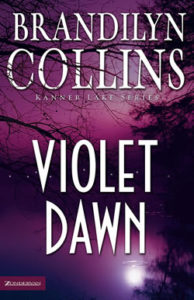How Should We Then Upgrade Christian Fiction?
 It’s a truth globally agreed upon: Young evangelical readers should be able to find Christian fiction beyond historicals, Amish romances, and subpar stories in all genres.1
It’s a truth globally agreed upon: Young evangelical readers should be able to find Christian fiction beyond historicals, Amish romances, and subpar stories in all genres.1
What isn’t as universally acknowledged is how to fill this need.
On July 29[, 2013,] The Weekly Standard’s Jon L. Breen arrived to this conversation and extolled author J. Mark Bertrand’s crime novels from Christian publisher Bethany House. In Breen’s view, Bertrand’s talents have been underappreciated and likely restricted:
J. Mark Bertrand deserves a wider readership than a religious publisher affords. Many writers are able to carry readers along by employing nice phrases and descriptive passages, bits of humor, character involvement, and curiosity about how it will all turn out. But few have Bertrand’s relentless narrative power.
This is encouraging. First, it’s great to see a Christian author gaining recognition. Second, Breen moves beyond Christian-fiction stereotypes, recognizing that publishers are relaxing restrictions and even exploring new genres.
Still, Bertrand is now without a publisher, and as paranormal author Mike Duran wrote, “The real victim in this tale of intrigue is not J. Mark Bertrand. It’s the industry that forces him to look elsewhere.”
Yes, despite some changes, excellent Christian novels of crime and other genres don’t gain success. But I believe it’s up to readers to encourage this change. And that starts by diagnosing why current demands for better Christian fiction are simply not working.
Crime fiction is not my favorite genre, I admit. But I’ve known a few Christian crime authors and spent a year working at a Lifeway Christian Store. Most evangelical publishers target such stores, which are patronized by what one indie press founder affectionately called the “little old lady brigade.” For these dear folks, it doesn’t matter if fiction is written well; ergo, all the blogs I’ve read about the need for deeper writing or better marketing won’t accomplish much if these customers aren’t buying. Many of them only want to be entertained safely.
“Yes,” some might reply, “and that’s the problem! Christian readers want subculture ‘safety.’ So let’s have more unsafe fiction, less rules against language, and more gritty content.”
But that “solution” only brings two further problems.

Fun fact: Violet Dawn features a cameo from SpecFaith’s original host Stuart Stockton.
First, many readers think tamed-down, swear-word-free crime fiction is the “unsafe” stuff. They love reading about a severely decomposed body floating in a cabin’s Jacuzzi (an actual scene from Brandilyn Collins’s Violet Dawn). To them, that’s thrilling. It’s gritty. It’s edgy. They’re quite happy to dispense with fiction censorship — to an extent. Thus, evangelical publishers can simply insist, “You want grittier content? That’s what we’re already doing.”
But the second problem is worse: If readers insisted only on loosening content restrictions, fewer authors — let alone readers — know why. Do we want to evangelize more readers? To entertain better? To prove to non-Christians that we’re also cool and gritty? Those are at best secondary goals, and it only repeats the pragmatism behind older content restrictions.
Instead of proposing surface-level solutions, Christians must consider this question:
According to the Bible, what is the “chief end” of story?
Is it evangelism? Gritty realism? Entertainment? Or a higher goal?
Only when we’ve explored the answer can we better promote the stories we love, and even pressure publishers to go beyond Amish books and crime novels where even street-gang murderers aren’t allowed to give a darn.
- Originally published Aug. 12, 2013 at Christ and Pop Culture. Alas, other deadlines have again postponed the conclusion to my Avatars of Forgiveness miniseries. I hope readers can forgive me. ↩











































You hit the nail on the head. The reason I am writing my speculative series is for the lost souls. If Christians happen to enjoy it, then that is wonderful…but I wrote these books for those who still need to see the Light.
@triadvstrinity
Greetings, Mia; thanks for your comment!
A worthy goal. I’m curious whether you believe a series written by a Christian and intended nonbelievers needs to be explicitly “evangelistic”? Or can such a story show a fictitious “simulation” of the world through a Christian’s eyes to explore suffering and joy, evil and good, in a new way? If the latter, then couldn’t Christians enjoy it also?
Of course, I’m asking because I’m biased. I don’t believe a good story should be necessarily “restricted” to one audience or the other. A good story is a good story and should be enjoyed by, and should challenge, Christians and non-Christians alike — because things such as beauty, goodness, and truth are universal.
Need we affix ourselves to gritty / not gritty? Some content might require one and little of the other, but along comes the next story idea and it needs the opposite ‘category.’
Why do I want to explore grittier struggles? What in the Bible speaks to this discussion? What does faith look like on paper? Will there ever be enough grit? Isn’t this a mirror image of what the American secular storytelling machine does? -push for grittier and grittier?
Should children be included in this discussion? What kind of book would Jesus have written when physically on earth? Where does the cross enter this discussion? Jesus lived spec fiction (in a manner of speaking. He performed the miraculous). Would he write it? Why didn’t He write anything? Or did He?(1)
Funny you’d bring in J. Mark Bertrand. Just yesterday I was on his site, and left a question he had a good-sized discussion about several years ago. He wanted to know where the Christian Literature was. Brought up Flannery O’Connor and Graham Greene. I asked him how he felt about that same question these days.
——————————————————————————–
(1) Hebrews 12: 2 fixing our eyes on Jesus, the author and perfecter of faith, who for the joy set before Him endured the cross, despising the shame, and has sat down at the right hand of the throne of God. (emphasis mine) (NAS)
These discussions always mix up “Christian” with “genre”. “Christian” seems to mean “applying the same restrictions that apply to children’s fiction to all adult fiction”.
Gritty? Depends on the genre. Thrillers, dark mysteries, and that ilk are likely to be “gritty”. Same with the shades of fantasy–high, low, adult, YA, middle grade. Some are likely to have “grittier” content than others. But can it all be Christian? Sure!
Christian means the worldview. Sometimes the religion of the characters. It doesn’t have to be a ghetto–it can be a quiet, but powerful part of the book, like Butcher’s Dresden series, or N.D. Wilson’s Ashtown Burials series. Even John Grisham has his moments.
I say we start a campaign for a Dresden Files posts–you with me, Kessie?
I prefer to read and write fiction that explores ideas. I don’t know what gritty fiction is, but as I’ve said before, it sounds really annoying like having dirt in your keyboard that you can’t get out and that gums up the works so tht yr tying lks lik ths.